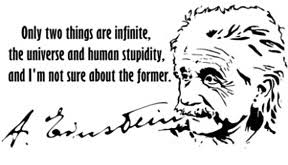The Battle of Wits: Natural Stupidity vs. Artificial Intelligence
Introduction:
The rise of artificial intelligence (AI) has sparked numerous debates about its potential to outsmart human intelligence. However, amidst the fascination with AI's capabilities, we must not forget the enduring presence of natural stupidity.
In this article, we explore the contrasting aspects of natural stupidity and artificial intelligence, highlighting their unique characteristics, their impact on society, and the challenges they pose.
Defining Natural Stupidity: Natural stupidity refers to the inherent limitations and cognitive shortcomings of human beings. It encompasses various traits such as ignorance, irrationality, and failure to grasp complex concepts. While intelligence can be nurtured and enhanced, natural stupidity represents the flaws in human thinking that persist despite education and experience.
Unveiling Artificial Intelligence: Artificial Intelligence, on the other hand, refers to the development of computer systems capable of performing tasks that typically require human intelligence. AI technologies such as machine learning and deep learning algorithms have shown remarkable progress in various domains, including natural language processing, image recognition, and decision-making.
The Advantages of Artificial Intelligence: AI exhibits several advantages over natural stupidity. It can process and analyze vast amounts of data at an extraordinary speed, identifying patterns and generating insights that surpass human capabilities. AI-powered systems can automate mundane and repetitive tasks, freeing up human resources for more creative and complex endeavors. Additionally, AI can minimize human error and enhance efficiency in various industries.
The Limitations of Artificial Intelligence: Despite its advancements, AI has its limitations. AI lacks inherent human traits such as common sense, empathy, and creativity. It struggles with interpreting context, understanding emotions, and adapting to unforeseen circumstances. Additionally, ethical considerations and biases can inadvertently be ingrained within AI systems, leading to unintended consequences and discriminatory outcomes.
Societal Impact: Natural stupidity and AI both have significant societal impacts. Natural stupidity contributes to misunderstandings, flawed decision-making, and social conflicts. AI, on the other hand, has the potential to revolutionize industries, improve healthcare, optimize transportation, and transform our daily lives. However, concerns about job displacement, privacy, and the concentration of power also arise as AI becomes increasingly pervasive.
Striking a Balance: Rather than framing natural stupidity and artificial intelligence as adversaries, it is crucial to find a harmonious balance between the two. Combining human intelligence, creativity, and critical thinking with the computational power and efficiency of AI can lead to remarkable breakthroughs. Emphasizing human education, ethical considerations, and responsible AI development can help mitigate the negative aspects of both natural stupidity and AI.
Conclusion: Natural stupidity and artificial intelligence represent two contrasting aspects of cognitive abilities. While natural stupidity embodies human limitations, AI showcases the incredible potential of technology. Recognizing the strengths and weaknesses of both is essential for harnessing their advantages and mitigating their disadvantages. As we navigate the evolving landscape of human intelligence and AI, it is crucial to approach these topics with an open mind, embracing the possibilities of collaboration and mutual growth.







